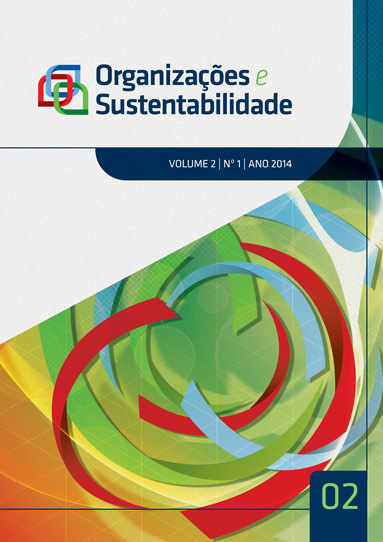Leagile Supply Chains and Value Generation
DOI:
https://doi.org/10.5433/2318-9223.2014v2n1p58Keywords:
Lean supply chain, Agile supply chain, Leagile supply chains, Decoupling point, Value generation.Abstract
Among global and highly competitive environments, the supply chains have the challenge of contributing to the process of income generation for both client and shareholder, through a high-level service with low total costs, as well as a satisfactory return of the investment. For this purpose, supply chains must have a configuration that allows meeting increasingly volatile demands, with high variability of products and low lead times. In addition, the products and services must have assured quality and competitive costs. Literature has pointed to two configurations that may be applied to the supply chain when facing these fields: the lean supply chain – CSL and the agile supply chain – CSA. According to Shingo (1996), a CSL is the one that applies the principles of Toyota Production System – TPS, which are generally based on waste reduction in income generation (Womack, Jones & Roos, 1992). It is also turned to identify all kinds of waste along the value chain aiming to eliminate them (Wee &Wu, 2009; Abdulmalek & Rajgopal, 2007). Whereas a CSA is leaned on the concept of agility developed by the Iacocca Institute in 1991, which was originally used to foment agile manufacturing (Bottani, 2009). Agility refers to the ability of both successful production and commercialization in a wide range of products with low costs, high quality, short lead time, varied size of lots and stipulation of a value increase to the individual client through customization (Vokurka & Fliedner, 1998) – quick response and customization are indispensable characteristics to a CSA. It is worth mentioning that CSL and CSA have different principles and applicability, which must not be mistaken. However, several authors have defended the hypothesis that both can be intercropped, originating a hybrid conformation to supply chains, which was named by Naylor et al. (1999) as “leagility” due to the fact that it combines advantages from lean strategy and from agility through the awareness on the market and on the positioning of the decoupling point – DCP. In this context, this study aims to describe the elements and practices that characterize the leagile supply chains and their possible income generation. To concretize this proposal, accomplished a literature review on about the concepts of lean strategy and value, as well as about lean, agile and the hybrid leagile supply chains. The next step was the performance of a discussion based on this previous theoretical review. According to the core result, the income generation ability of a leagile supply chain is bonded to what the combination of both models may offer. Quick response and diverse offer of products bonded to the decrease of lead time, defects and costs are the items that make the value generation in a leagile chain for clients and shareholders possible. The study offers contributions to both academic and practical knowledge and its deepening points to future researches further empirical research.Downloads
Download data is not yet available.
Downloads
Published
2014-10-13
How to Cite
Busanelo, E. C. (2014). Leagile Supply Chains and Value Generation. Organizações E Sustentabilidade, 2(1), 58–93. https://doi.org/10.5433/2318-9223.2014v2n1p58
Issue
Section
Artigos
License
O(s)/a(s) autor(es)/autora(s) transfere(m) todos os direitos autorais do artigo para a revista Organizações e Sustentabilidade, sendo vedada qualquer reprodução, total ou parcial, em qualquer meio de divulgação, impresso ou eletrônico, sem que a prévia e necessária autorização seja solicitada e, se obtida, fará constar o competente registro e agradecimento à revista.












